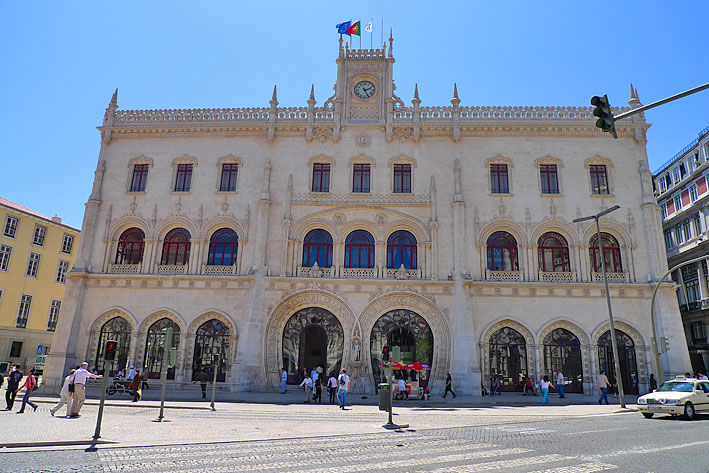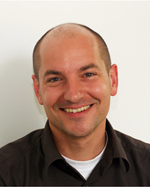|
The IADIS International Conference Internet Applications and Research 2012 was held in Lisbon, Portugal, 17 – 19 July, 2012.

The IADIS Internet Applications and Research 2012 purpose was to address the main issues of concern within Internet and WWW.
The IAR 2012 received 23 submissions from more than 11 countries. Each submission had been anonymously reviewed by an average of five independent reviewers, to ensure the quality of the accepted submissions. Hence only 4 full papers were approved which meant an acceptance rate of 18 %. A few more papers were accepted as short papers. Extended versions of the best papers were published in the IADIS International Journal on Computer Science and Information Systems (ISSN: 1646-3692) and also in other selected journals, including journals from Inderscience.
The submissions were accepted under the following main areas:
- Accessibility
- Adaptive Web Systems
- Collaboration
- Computer-Mediated Communication
- Data Mining
- Database Planning and Development
- Digital Economy
- Digital Libraries and E-Publishing
- Distributed and Parallel Applications
- E-Business and E-Commerce Technologies
- E-Government Technologies
- e-Health Technologies
- E-Learning Technologies
- Electronic Data Interchange
- Quality, Evaluation and Assessment
- Extensible Languages
- Game Technologies
- Global Tendencies in WWW/Internet
- Groupware
- Human Computer Interaction & Usability
- Hypermedia
- Information Architectures
- Information Visualization
- Intelligent Agents
- Interfaces
- Internet & Customer Relationship Management
- Internet Payment Systems
- Internet Services
- Languages
- Metadata
- Mobile Web
- Multimedia
- Performance Issues
- Personalized Web Sites and Services
- Portal strategies
- Protocols and Standards
- Searching and Browsing
- Security Issues
- Semantic Web
- Social & Legal Issues
- Storage Issues
- System Integration
- Teaching and Learning Strategies
- Technology Innovation and Competitiveness
- Technology Management
- Technology Strategies
- Tele-Work
- Web 2.0 Technologies & Applications
- Web 3.0 Technologies & Applications
- WWW/Internet Applications
- WWW/Internet Case studies
- WWW/Internet Impacts
- Web Engineering
- Web Personalization
- Web Software
- Wireless Applications
- Ubiquitous Computing
- Usability
- User Modelling
- Virtual Communities
- Virtual Reality
- XML
The Conference included the presentation of full papers and short papers, a tutorial by Jörg Roth, University of Applied Sciences Nuremberg, Germany and also one Keynote presentation by Dr. Stephan Lukosch, Associate Professor, Delft University of Technology, The Netherlands, an internationally distinguished researcher.
Conference Tutorial:
- MANAGING GEO DATA – USAGE OF OPEN STREET MAP FOR OWN SERVICES AND APPLICATIONS by Prof. Jörg Roth, University of Applied Sciences Nuremberg, Germany
Abstract:
Several applications and mobile apps need access to spatial geo data. They often contain functions to display the user's position on a map, provide route planning or are able to look up important locations. To provide these functions, applica¬tions can use widely available service platforms such as Google Maps. However, some¬times it is useful to have the spa¬tial services and data fully under own control. Reasons could be: costs, license models, service availability or the quality of spatial data.
Nowadays, we can use different sources to get spatial data. The most important source is Open StreetMap (OSM) – a com¬munity project to collect and disseminate world wide geo data. Meanwhile, OSM data has a high coverage, high quality and attractive license models. It thus is suitable even for small projects.
This tutorial presents the benefits and issues using OSM data for own projects. Among other topics this tutorial presents: OSM as a community platform, the format of OSM data, OSM data types, representation of geometries, non-spatial prop¬erties and names, classification of objects, topologies and route planning, painting maps, storing and accessing geo data. In addition, we present a sample workflow chain to import, process and manage geo data based on OSM for own projects.
Keynote Presentation:

K1 - TOWARDS EFFECTIVE COLLABORATION IN NEW EMERGING INTERACTION SPACES by Dr. Stephan Lukosch, Associate Professor, Delft University of Technology, The Netherlands
Abstract
Designers and engineers solve complex problems using many different tools. Often they work in various projects to bring in their expertise and thereby knowledge is dispersed over different team members, artifacts and systems. The used collaboration support tools are not used on a regular basis, exist in a variety of shapes, offer limited process support and do not adapt to changing needs of a team. As result, designers and engineers often face a complex collaboration environment and have to negotiate and perform adaptations manually. They are not interacting as a participatory system in which all team members trust each other and are willing to act towards a shared goal.
This impacts the effectiveness of the collaboration process and results in inefficient interaction and reduced team performance. This paper discusses the above issues in more detail. It presents previous work on shared data management, pattern-based design, context-adaptive collaboration and collaborative knowledge acquisition. Based on this background, the paper outlines a research agenda towards effective collaborative design and engineering based on new forms of collaborative interaction in traditional as well as emerging interaction spaces
The proceedings were published both in Book (ISBN: 978-972-8939-73-1) and CD-ROM (ISBN: 978-989-8533-08-1).
Program Committee:
Program Chair:
- Pedro Isaías, Universidade Aberta (Portuguese Open University), Portugal
General Conference Co-Chairs:
- Piet Kommers, University of Twente, The Netherlands
- Pedro Isaías, Universidade Aberta (Portuguese Open University), Portugal
Committee Members:
Ahmad Nadali, Islamic Azad University, Iran
Alberto Corrales Garcia, Universidad Castilla La Mancha, Spain
Allan Macleod, University Of Abertay Dundee, Scotland
Alvaro Fernandez, Universidad De Granada, Spain
Amelia Badica, University Of Craiova, Romania
Andres Soto, Universidad Autónoma Del Carmen, Mexico
Anibal Zaldivar Colado, Universidad Autonoma de Sinaloa, Mexico
Anna Goy, Universita Di Torino , Italy
Antonia Maria Reina Quintero, University Of Sevilla, Spain
Aude Seurrat, University Of Paris Xiii, France
Bin Guo, Institut Telecom Sudparis, France
Carlos Rodriguez Dominguez, Universidad De Granada, Spain
Carmen Martinez Cruz, Universidad De Jaén, Spain
Christos Grecos, University Of West Of Scotland, United Kingdom
Constantine Kotropoulos, Aristotle University Of Thessaloniki, Greece
Costel Ionascu, University Of Craiova, Romania
Cristian Marian Mihaescu, University Of Craiova, Romania
Dagmar Monett Diaz, Berlin School Of Economics And Law, Germany
Daniel Thalmann, Nanyang Technological University, Singapore
David Pinto, Benemérita Universidad Autónoma De Puebla, Mexico
Demetrios Sampson, University Of Piraeus, Greece
Dumitru Burdescu, University Of Craiova, Romania
Eduardo Peis, Universidad De Granada, Spain
Elsa Trigueros Sanchez, Universidad De Granada, Spain
Fabiana Vernero, University Of Turin, Italy
Federica Cena, University Of Turin, Italy
Florian Daniel, University Of Trento, Italy
Francesco Lelli, Tilburg University, Netherlands
Francisco Pascual Romero, Universidad De Castilla La Mancha, Spain
Francisco Javier Montoro-rios, University Of Granada, Spain
Garmpis Aristogiannis, Technological Educational Institution Of Messolong, Greece
Geoffrey Lund, University Of Abertay Dundee, United Kingdom
Giovanna Petrone, University Of Turin, Italy
Habib Zaidi, Geneva University Hospital, Switzerland
Harry Agius, Brunel University, United Kingdom
Hui Yu, Heriot-Watt University, United Kingdom
Huiyu Zhou, Queen's University Belfast, United Kingdom
Ilia Petrov, Darmstadt University Of Technology, Germany
Irena Mlynkova, Charles University in Prague, Czech Republic
J. Arturo Olvera Lopez, Autonomous University Of Puebla, Mexico
Javier Jesus Gutierrez Rodriguez, University Of Sevilla, Spain
Jesus Serrano Guerrero, University Of Castilla La Mancha, Spain
José Alfonso Aguilar Calderón, Universidad Autónoma de Sinaloa , Mexico
José Alfredo Ferreira Costa, Federal University, UFRN, Brazil
Jose Luis Martinez, University Of Castilla La Mancha, Spain
José Manuel Morales Del Castillo, Universidad De Granada, Spain
Juan Sanchez Fernandez, University Of Granada, Spain
Juan Francisco Peraza Garzon, Autonomous University Of Sinaloa , Mexico
Juan Gabriel Gonzalez Serna, Centro Nacional De Investigacion Y Desarrollo Tecn, Mexico
Juan Pablo Soto Barrera, Universidad De Sonora, Mexico
Juha Puustjarvi, Helsinki University Of Technology, Finland
Jun Zhang, Waseda University, Japan
Kevin Curran, University Of Ulster, United Kingdom
Laila Benhlima, Ecole Mohammadia D'ingénieurs, Morocco
Liliana Ardissono, University of Torino, Italy
Luca Cernuzzi, Universidad Católica "nuestra Señora De La Asunció, Paraguay
Manolis Gergatsoulis, Ionian University, Greece
Manuel Mejias Risoto, Escuela Técnica Superior De Ingeniería Informática, Spain
Marco Furini, University Of Modena And Reggio Emilia, Italy
Maria Bermudez Edo, University Of Granada, Spain
Maria Rigou, University Of Patras, Greece
Maria Jose Escalona Cuaresma, Universidad De Sevilla, Spain
Maria Jose Rodriguez Fortiz, Escuela Técnica Superior De Ingenieria Informatica, Spain
Maria Luisa Rodriguez-Almendros, Escuela Técnica Superior De Ingeniería Informática, Spain
Martin Gaedke, Chemnitz University Of Technology, Germany
Maya Carrillo Ruiz, Benemerita Universidad Autonoma De Puebla (buap), Mexico
Morten Goodwin, Tingtun AS, Norway
Mounia Fredj, Ensias - Ecole Nationale Superieure D'informatique, Morocco
Nawaporn Wisitpongphan, KMUTNB, Thailand
Noureddine Bouhmala, Vestfold University College, Norway
Oscar Mario Rodriguez Elias, Instituto Tecnológico De Hermosillo, Mexico
Otoniel Lopez, Universidad Miguel Hernandez, Spain
Pablo Pinol Peral, Universidad Miguel Hernandez, Spain
Qi Wang, University Of The West Of Scotland, United Kingdom
Rogelio Estrada Lizarraga, Autonomous University Of Sinaloa, Mexico
Roland Kaschek, University Of The Faroe Islands, Faroe Islands
Ryszard S. Choras, University Of Technology & Life Sciences, Poland
Sam Suppakkul, Keane, An NTT Data Company, USA
Sok-ian Sou, National Cheng Kung University, Taiwan
Spiros Sirmakessis, Technological Educational Institution of Messolong, Greece
Tayeb Lemlouma, IRISA / IUT Of Lannion (University of Rennes 1), France
Tomas Ruiz Lopez, University Of Granada, Spain
Victor Sosa-Sosa, Cinvestav, Mexico
Vladimir Shekhovtsov, National Technical University Kharkiv Polytechnic , Austria
Vladimir Stantchev, Srh University Berlin, Germany
Wolfgang Deiters, Fraunhofer-institut Fur Software Und Systemtechnik, Germany
Zaher Al Aghbari, University Of Sharjah, United Arab Emirates
Zhaoxiang Zhang, Beihang University, China
|


